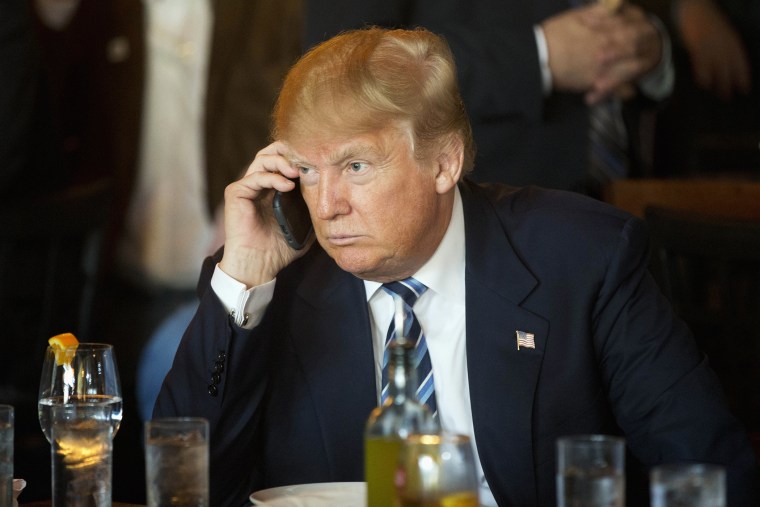It was a little embarrassing for Commerce Secretary Wilbur Ross last fall when the public saw reports that he may have lied about his net worth. Apparently, over the course of several years, Ross wildly exaggerated his finances because he wanted to be seen as a billionaire on the Forbes 400 list.
Ross was ultimately removed from the list altogether when the publication determined that Ross had "lied" to the magazine, and the "fibs, exaggerations, omissions, fabrications and whoppers" went on for quite a while.
But as it turns out, he's not the only member of the Trump administration who was concerned about the Forbes 400 list -- because Ross' boss ran into some trouble of his own. Jonathan Greenberg wrote this gem for the Washington Post.
In May 1984, an official from the Trump Organization called to tell me how rich Donald J. Trump was. I was reporting for the Forbes 400, the magazine's annual ranking of America's richest people, for the third year. In the previous edition, we'd valued Trump's holdings at $200 million, only one-fifth of what he claimed to own in our interviews. This time, his aide urged me on the phone, I needed to understand just how loaded Trump really was.The official was John Barron -- a name we now know as an alter ego of Trump himself. When I recently rediscovered and listened, for first time since that year, to the tapes I made of this and other phone calls, I was amazed that I didn't see through the ruse: Although Trump altered some cadences and affected a slightly stronger New York accent, it was clearly him. "Barron" told me that Trump had taken possession of the business he ran with his father, Fred. "Most of the assets have been consolidated to Mr. Trump," he said. "You have down Fred Trump [as half owner] ... but I think you can really use Donald Trump now." Trump, through this sockpuppet, was telling me he owned "in excess of 90 percent" of his family's business. With all the home runs Trump was hitting in real estate, Barron told me, he should be called a billionaire.
But as Greenberg documented, Trump, through his alter ego, wasn't telling the truth, and he wasn't a billionaire, at least not at the time.
To a very real extent, an article like this checks several boxes. Trump is insecure about his wealth? Check. Trump likes to make up people, pretends to be those people, and says nice things about himself to the press? Check. Trump combines narcissism and dishonesty in ways that get a little creepy? Check.
There's a lot to Greenberg's piece, which is tough to excerpt, and which is worth your time. But before you dismiss the revelations as old news, let's not forget that some of these issues remain unresolved, and Trump may still be exaggerating his finances in ways he doesn't want the public to know about.
Remind me: where are those tax returns the president once said he'd be happy to share with the public?
